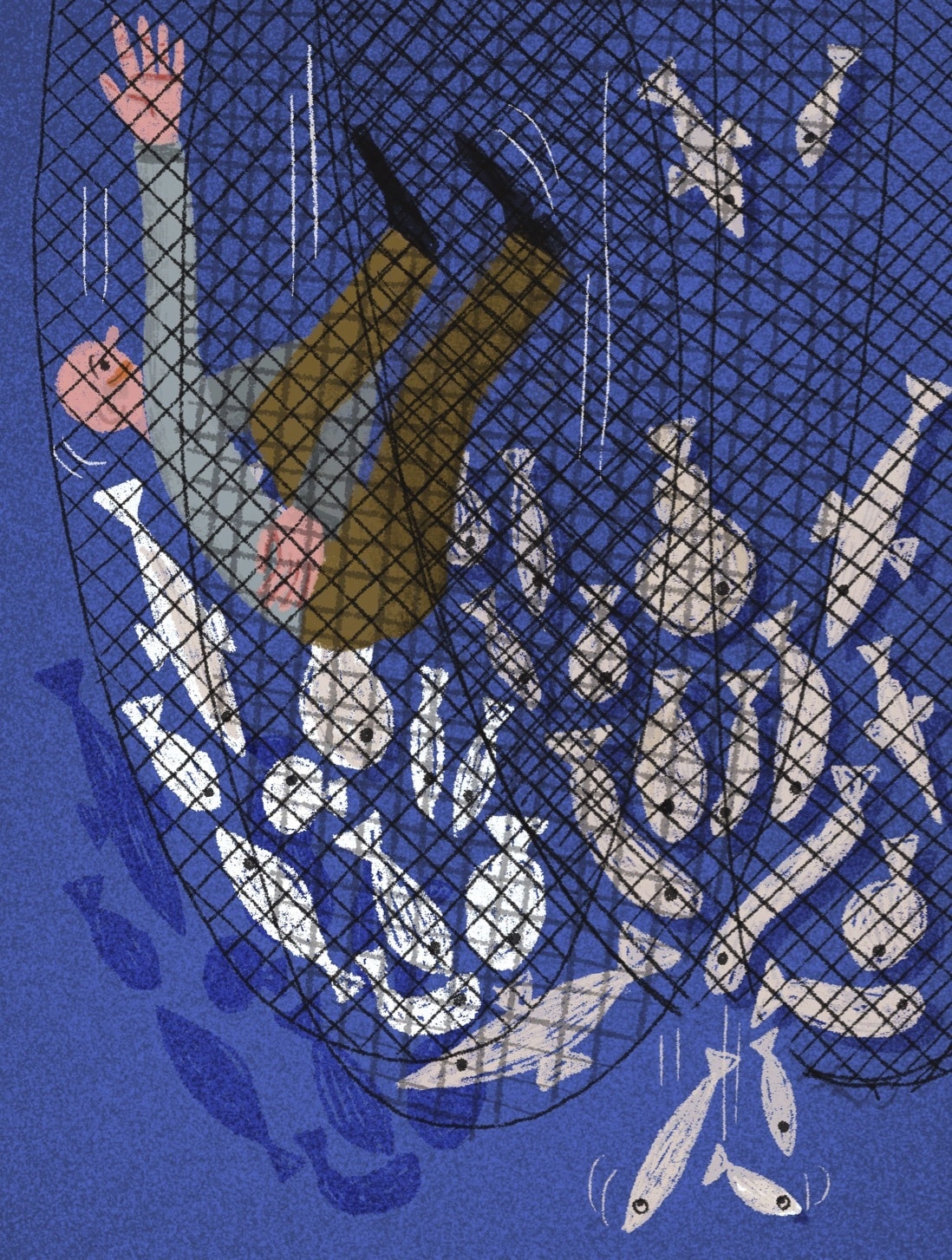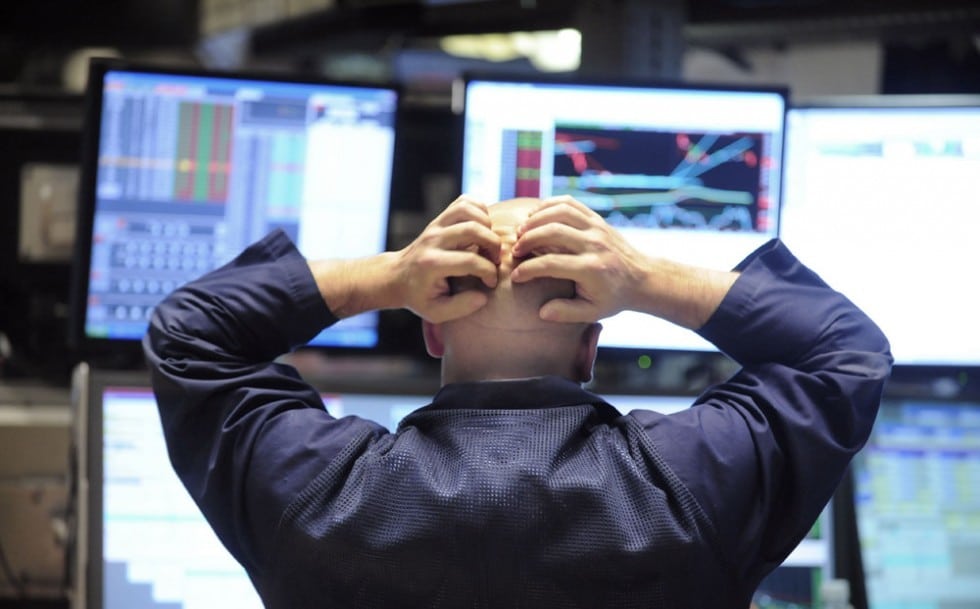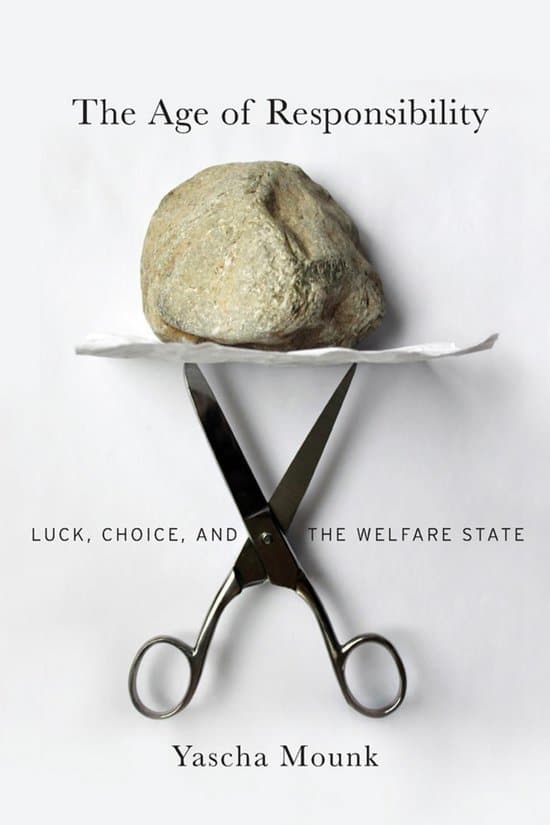The Welfare State Should Be a State of Fairness and Trust
After 1945, Belgium and the Netherlands rolled out a monumental social security system that brought prosperity and emancipation. It connected people and stabilised economic and political systems. In 2020, this welfare state has come under pressure. It no longer appears to be self-evident and it is certainly not everlasting. The historian and journalist Casper Thomas states, ‘The welfare state of the twenty-first century should be one of trust and fairness, which neither starts from an assumption of deliberate misuse nor from an uncritical assumption of self-reliance.’
‘Just as a fish has no notion of water, I had no clue about the welfare state.’ So begins the 2016 book by Dutch writer Rob van Essen (b. 1963), Kind van de Verzorgingsstaat (Child of the welfare state), in which he sketches out his memories of growing up within the safe contours of the society built up by the Netherlands in the post-war decades. This shows a cushioned world, full of good social housing, money from the government, without too many questions asked and above all: with little direct consequences for the person who works that little bit slower or decides to step outside of the framework of training, a job, and hard work.

Van Essen, who chose to drop out of school and lived on benefits for years, describes himself as the ‘product of a continuous period of peace and prosperity’. Whatever his generation did, one’s existence was not really at risk ‘because underneath all the trapezes on which we performed our tricks hung a solid safety net’.
Unlucky millennials
Fast forward to the first two decades of the twenty-first century, in which, as editor of the weekly magazine De Groene Amsterdammer, I have been researching how the welfare state works for my generation, born in the 1980s. Compared to when their parents were young, people in their twenties and thirties on average must do with fewer wage increases, less wealth accumulation and smaller pension savings. Besides that, they are also deeper in debt. In its Global Wealth Report 2017, Credit Suisse calls this group ‘Unlucky millennials’. The ‘unlucky’ further takes on an unfortunate connotation when you consider that millennials are better educated and work harder than previous generations (the total number of hours worked in the Netherlands according to the Central Bureau of Statistics (CBS) has increased by sixteen per cent in the last twenty years), but nevertheless run a real risk of ending up lower down the economic ladder.
 Millennials are better educated than previous generations, but nevertheless run a real risk of ending up lower down the economic ladder.
Millennials are better educated than previous generations, but nevertheless run a real risk of ending up lower down the economic ladder.© Tom Woodward/Flickr
This raises a complex question: how is it possible that labour productivity is still increasing but that average wages per employee have stagnated? The million-dollar question is who here is earning the extra profit. The CBS explains this statistic with the statement, ‘The number of permanent employment contracts is decreasing in favour of other job types’. ‘Other job types’ primarily means: less well paid and temporary. And it is mainly young people who form the legion of flex-workers. Nearly a third of employees under the age of 34 work flexibly. In the age group above them, only about ten per cent do.
There are of course cyclical reasons for this relative – because that’s what it is – decline. There is robotization, globalisation that makes the distribution of wealth between the West and the rest of the world less skewed, plus other major economic trends that make it difficult to maintain the same prosperity for all. And that is where the welfare state comes into play. After all, was it not precisely intended as a breakwater against the ups and downs of the economy, which an individual cannot do much about on their own?
The welfare state is on all fronts less generous than in previous decades
But here again, people today must also make do with less welfare provision. The welfare state is on all fronts less generous than in previous decades. There is much to be said for the obligation to look after oneself and for a government that spends no more on social services than it can actually afford. But it warps between generations. Pensions are a good example. ‘A young person pays a premium that is higher than the accrual it amounts to, an older person pays too little,’ the Central Planning Bureau concluded a few years ago. This much is common knowledge. The Scientific Council for Government Policy already warned in 2006 that the welfare state works too much to the advantage of the elderly. Certainly, there are also poor elderly people and wealthy young people, but what is essentially taking place is a transfer of wealth from a poorer to a richer generation.
This is down to a changing demography. Population growth has been declining since the 1950s. As a result, the 1980–2000 cohort is the smallest since the Second World War. But the question is who should bear the brunt of these negative economic consequences. Millennials themselves did not determine the size of their generation. Perhaps they would have liked to have been more numerous. In any case, that would have spread the burden of the welfare state over more shoulders. But their parents, children of the welfare state and sizeable in number, considered an average of 1.7 children sufficient.
Do not take this explanation as a personal complaint. I was born in 1983. According to some definitions, that would place me in the millennial category. But I argue that the term “millennial” should be used for someone who has grown up under relatively precarious economic conditions, has been pressured to achieve from an early age and on top of that has ended up in a much-reduced welfare state.
(continue reading below illustration)
 Does the social security system in The Low Countries still provide a solid safety net?
Does the social security system in The Low Countries still provide a solid safety net?© Trui Chielens
Last ship to make port safely
I sat a test for the first time only at the end of primary school. I studied what I liked and the whole idea that the future might be more grim economically than the past was a theoretical abstraction. As far as I can tell, this is true for most of my peers. The turning point, it seems, has only come with the 2008 financial crisis, when most of us had already boarded the last ship to make port safely.
The financial crisis of 2008, which gave rise to what has entered the history books as “the great recession”, was the moment when the welfare state suddenly became visible to a new generation. To sum it up with Rob van Essen’s metaphor: suddenly, fish were confronted with the water in which they swam. And for some, that experience consisted of gasping for air because the fishbowl had been drained. For governments worldwide, the crisis was a reason for austerity measures.
In the Netherlands, the cuts were not so bad. Moreover, the reduction of the welfare state was supported by the majority of the population. Hence, in 2016 welfare state researchers Kees van Kersbergen and Barbara Vis concluded that the welfare state ‘has not become a victim of itself’, but had only changed in character.
 The financial crisis of 2008 was the moment when the welfare state suddenly became visible to a new generation.
The financial crisis of 2008 was the moment when the welfare state suddenly became visible to a new generation.I spent the early years of the great recession inquiring how it had come about. Blessed with a government job, I participated in an investigation by the Scientific Council for Government Policy into the causes of the crisis. What I heard from internationally renowned economists was that the welfare state would most likely survive it. Little economic growth was needed to keep the European welfare states up and running and the crisis had underlined the importance of the welfare state. This did not mean that the blows dealt by the crisis and austerity fell on the strongest shoulders, but there was no need to fear for the structure as a whole.
What this experience taught me is that there are two sides to the welfare state. There is the practical side, formed by a complex network of laws and regulations, their monitoring and implementation, and the thousands of jobs involved (often one forgets the welfare state is such an enormous provider of employment). This political-economic body is used to pump the billions of euros that the Netherlands sets aside every year, based on the belief that an individual does not stand alone. Add up the expenditures for social security, care and education, culture and science, and you get 200 billion in the Netherlands, in a budget of 293.3 billion. That figure is sufficient to relegate the idea of a broken-down welfare state to the realm of fable. The main thing the government does in the Netherlands is to collect money and reallocate it to nurturing, supporting and promoting causes, where individuals are ultimately the recipients.
Instead of a gentle flow, the welfare state is now a turbulent pool, in which people also drown
Which is not to say that the welfare state is static. In Kind van de Verzorgingsstaat (Child of the welfare state), Rob van Essen speaks of a ‘tinge of eternity’ that hangs around the welfare state. That experience has vanished. Instead of a gentle flow, the welfare state is now a turbulent pool, with waves sometimes showing crests of foam, and in which people also drown. And that brings us to the second face of the welfare state: the enduring discussion about it, and the bid for new imagery that can capture its helping hand.
The term “social investment state” was introduced by policymakers to make clear that public funds do not simply disappear into a bottomless pit, but yield returns in the form of productive, educated citizens. In an attempt to replace an idea of passivity with an idea of participation, the second Rutte cabinet wanted us henceforth to speak of a “participatory society”. The needy must be cared for, the model citizen of today participates, thanks to support from the state. What this kind of shifting vocabulary mainly shows is that it is impossible to speak about the welfare state without taking a political position.
It is impossible to speak about the welfare state without taking a political position
And that is precisely the overarching transformation that the welfare state has undergone. All the austerity on benefits, all the emphasis on quid pro quo and the scrapping of old and drawing up of new laws take place in a context of the discussion on the big subject itself. And that provides new material for writers to write their memoirs, for scientists to do research on, and for publicists to devote essays to. In a way, the welfare state is our national occupational therapy, a guideline through which we conduct a public debate about what a person can expect from society and what we are willing to do for each other.
The age of responsibility
Seen in this way, you can roughly point to three phases in the history of the welfare state: the advocating phase in which, in particular, social democratic and Christian democratic movements advocated the need for social programmes and government expenditure with an appeal to fairness and compassion. Packaged inside as a sweetener for Liberals was the notion that a healthy citizen is a hardworking citizen. The establishment of a welfare state started in the Netherlands during the period of reconstruction, after the Second World War. In London, the Dutch government-in-exile had encountered the Beveridge Report (1942), the English blueprint for a state that provides a safety net for its citizens. After 1945, under the leadership of the Catholic-Socialist coalitions of Willem Drees in the Netherlands, the starting shot was sounded for a step-by-step construction of the welfare state.
 Social democrat Willem Drees, the architect of the social security system in the Netherlands
Social democrat Willem Drees, the architect of the social security system in the Netherlands© Wikipedia
You could call the second phase the silent phase. It is the period described by Rob van Essen in his book. It is the phase of water and fish, in which the welfare state seems so natural that you can hardly discuss it. Of course, the 1970s were a period of crisis, ending the short time that the welfare state was uncontested. Apparently, though, for those who grew up in that era, the welfare state was an invisible environment.
The third phase, in which we are living now, is characterised by a growing distrust of the welfare state. The dominant view is that the welfare state is a bill paid by society, but not without first thoroughly examining the receipt. And once the money has been paid, there are systems to check that it has not been spent incorrectly. Where the original welfare state starts from the idea that the arrows of fate simply hit random targets, today’s welfare state takes as its starting point people’s own responsibility and the suspicion of fraud.
The coalition agreement of the second Rutte cabinet, which envisaged a new direction for the Dutch welfare state, illustrates the point. ‘Anyone who does not find work through no fault of their own, has the security of a benefit at least at the subsistence level,’ opened the section on social security. An unsurprising formulation, which at the same time expresses a firm conviction: that another group is “guilty” – a heavy word – for its unfortunate circumstances. The transition to a “participatory society”, announced by the previous cabinet, now seems complete. In the new coalition agreement, the term “welfare state” is absent and the emphasis is on people’s own initiative.

These are signs that we are living in the “age of responsibility”. That label comes from Yasha Mounk, a political scientist at Harvard University and author of the book The Age of Responsibility. In it, Mounk shows how “individual responsibility” has become a central concept in our moral vocabulary. It is a benchmark in our debates on justice and it serves as a touchstone for concrete policy. If there is one thing that characterises the political culture of our prosperous societies, it is the deep-rooted belief that people can be held accountable for what is happening in their own lives, he concludes.
To maintain the ideal of self-reliance, the government has adopted a complicated dual role. On the one hand, it is a pillar for those who are stretched financially and at the same time, it is a strict parent who judges whether enough of an effort has been made. Only when such judgements are positive will the gate to the welfare state open. Anyone who slips inside without approval will be penalised. This is to prevent people from trying to make use of schemes without having procured the right to do so. In this way, our welfare state is simultaneously a state that makes assessments, deciding whether individuals have taken on sufficient responsibility, with the government as arbiter.
And just as in the past people undoubtedly benefited unlawfully from a generous welfare state, things regularly go wrong with today’s distrustful version. The National Ombudsman recently investigated families whose child benefit had been suspended on suspicion it had been paid wrongfully. In three-quarters of the nearly 4,000 investigated cases, the suspicion turned out to be unfounded. These are examples of “No fraud, nevertheless a fine” as a 2014 report by the National Ombudsman is titled. In recent years, the investigations by this agency have provided many examples of a punitive government mistaken in its judgement: graduates who accrue debt because they have not unsubscribed from their annual public transport card on time; job seekers who are fined for mistakes on their application forms; families losing hundreds of euros to debt collectors because of one missed instalment.
Debt through necessity
Of course, people do take care of themselves. But in practice, it seems this is difficult for a large group of people. At present, 1.3 million households in the Netherlands have problematic debts. Stuck to the idea of being in debt is an image of easy spending and living beyond your means. But in its recent report, Simplicity works, the Council for Health and Society has significantly redressed this picture. Most payment arrears are related to the costs of rent, energy bills, health insurance premiums and taxes. Hundreds of thousands of households have fallen into debt through necessary interaction with basic services.
1.3 million households in the Netherlands have problematic debts
These debts through necessity are directly related to how the requirement of self-reliance has been formulated. Debt often begins with surcharges that need to be repaid or with fines received due to administrative error – measures designed to encourage citizens to assume responsibility. What happens then is what the Council for Health and Society calls an “escalation of debt”: small amounts are not repaid and the bill quickly rises via automatic increases. For each family in the red, on average fifteen different creditors will come knocking to collect outstanding payments, the majority of whom work for the government or the semi-public sector. Once again, we see the dual role of the government: as both lender and bailiff.
Recalibration of the welfare state should, therefore, take place along the lines of trust, with neither the assumption of deliberate misuse nor of ubiquitous self-reliance as the starting point. The welfare state is still cherished by citizens and is popular with almost all political parties. Citizen and government who regard one another suspiciously, where one side fears being hard done by and the other suspects profiteering behaviour, does not fit in that picture. The twenty-first-century welfare state should be one of mutual trust and fairness.
Always a political struggle
I am currently viewing the Dutch welfare state from a distance. A few years ago, I moved to the United States to report on the Trump era. My new location teaches important lessons about the welfare state, precisely because it hardly exists there. This country reveals how backwardness and inequality can grow unchecked when civic responsibility becomes an undisputed philosophy. The age of responsibility began sooner in the US and has exerted a much deeper influence. A collective interpretation of the American dream, ensuring that everyone can lead a decent middle-class existence, has given way to individual interpretation, as Yasha Mounk shows in The Age of Responsibility. Whoever makes the wrong choices, should not count on government help. Since then, the number of Americans living on less than two dollars a day has grown from over 600,000 to over one and a half million. More than 11 per cent of the population still has no health insurance.
Whether the dream of support and a safety net triumphs over America’s aversion to the helping hand is an open question
However, here too, a turnaround is brewing. As I write this piece, the race for the Democratic Party presidency is in full swing. Candidates with a programme that would provide America with a form of welfare state, which on some points would even surpass that of Europe, are doing well in the polls. Both Elizabeth Warren and Bernie Sanders want free health care, cancellation of university debt and free education. Three-quarters of Americans support the idea of higher taxes to pay for such programmes. Whether the dream of support and a safety net triumphs over America’s aversion to the helping hand is an open question. But that this politics is gaining popularity in a place that we do not easily associate with it shows that the welfare state is never static. The welfare state is always the subject of political struggle.
This article is the English translation of De vertrouwensstaat, published in the book Nulpunt 1945 (Zero Point 1945, Ons Erfdeel vzw, 2020).






